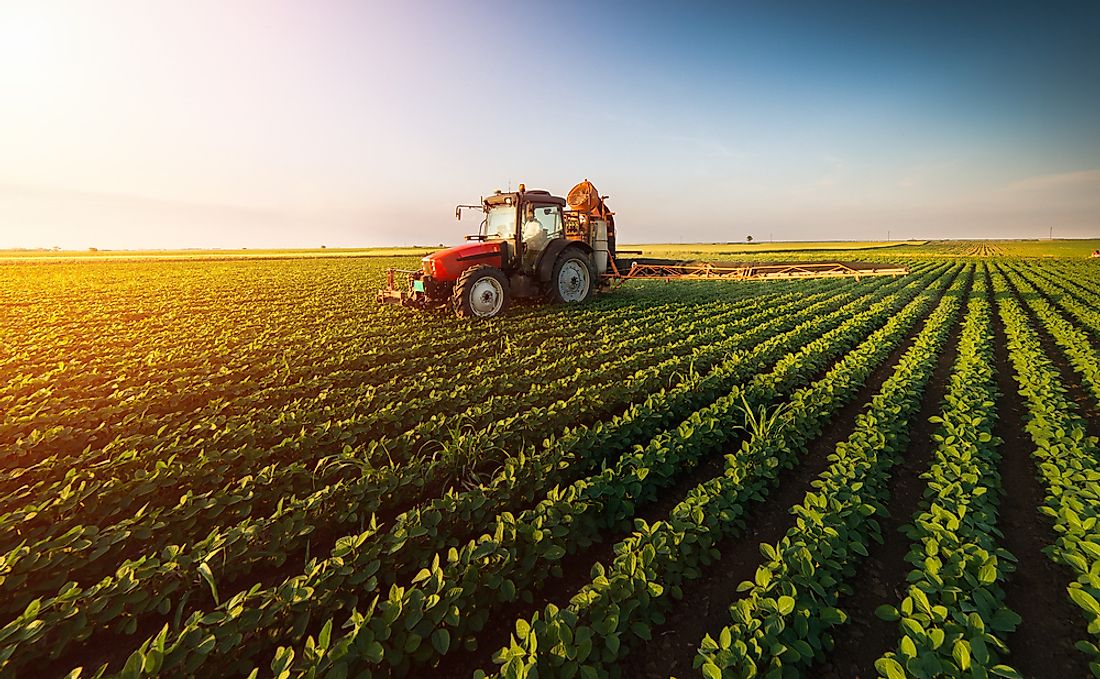How Agriculture Is Impacting the Environment?
Food is the basic need of humans and an important component of our well-being. In this globalized world, everyone is connected. Now a salmon caught in the Pacific Ocean can be enjoyed by someone sitting in an American restaurant.
Every country is striving hard to meet the growing demand for food. Several methods are being implemented to increase crop production. Not only crop production, but food also went through various processes before reaching our plates such as processing, storing, and packaging. At every stage, the food emits greenhouse gases which impact the climate and eventually the whole ecosystem.
Methane and Nitrous oxide- The two most important greenhouse gases are produced during farming. While nitrous oxides are produced by fertilizers, methane is released during the digestion of animals. In addition to this, the unsustainable method of farming is also affecting the ecosystem to a large extent. According to an estimate, more than 14% of greenhouse gases are produced due to unsustainable farming practices.
Fortunately, there are methods through which the current situation can be changed. Let’s discuss them one by one:
Biodiversity
In Sustainable farming, different crops are planted in alternate seasons and native trees and shrubs are grown along with the crop. This not only helps in saving diversity but also helps in preventing soil erosion. Some types of flowers and plants attract beneficial insects and repel harmful pests and bugs. Biodiversity helps in replenishing the soil's nutrients and keep it healthy.
Soil enhancement
Soil enhancement means encouraging the health of the soil by encouraging those communities of micro-organisms that improve the fertility and keep control of the use of harmful pesticides and insecticides on the crop.
In crop rotation, a series of dissimilar crops are grown in the same area in alternate seasons. This helps in increasing the fertility of the soil by stimulating microorganisms. Covering the crops during the off-season and let the crop residue lies on the field refill the soil of healthy nutrients.
Judicial use of water
Sustainable agriculture methods emphasize the calculated use of water. Various methods are being utilized by farmers and agricultural companies all over the world to conserve water such as drip irrigation, capturing water, irrigation organization, rotational grazing, etc.
- Drip Irrigation: In this method, water is delivered directly to the roots of the plants. Drip irrigation reduces the evaporations that take place after watering the plants.
- Capturing water: Most of the farms rely on the water of the municipal corporations or groundwater. Managed ponds and rainwater harvesting are great ways to reduce your dependence on groundwater.
- Irrigation organization: Smart ways are used to know when, how much and how water should be delivered. Now farmers carefully monitor the weather forecast and use certain methods to know about soil and plant moisture. All this helps them avoid overwatering and under watering their crops.
- Rotational grazing: Farmers promote rotational grazing by moving livestock between fields. Good grazing management helps in increasing the water content in the soil and makes the pasture drought resistant. The excreta of animals also increase the fertility of the soil.
To conclude, unsustainable agriculture practices have impacted the environment to a significant extent. So, there is a need to implement sustainable farming methods all over the world. While several countries, organizations, and farmers have started using it, still a lot has to be done. If you want to support sustainable farming practices, get in touch with friend of the earth. We provide sustainable certification to companies and farmers that comply with our standards. To know more about us, contact Friend of the Earth.



Comments
Post a Comment